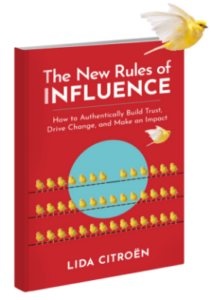Recently, I was asked to speak at a university to a group of graduate communications students. They asked me to address my journey as an entrepreneur who built a successful company in the branding and communications space. We talked about the risks and rewards of being an entrepreneur, the process of building an international brand, and the many lessons I’ve learned in the past seven years since LIDA360 launched.

Whenever I speak at colleges and universities, the round of questions from students is always interesting. They ask about my personal journey, the people I networked with and how my college training prepared me for my career.
On this particular day I got a question that stumped me: “Can you tell us about a time you failed?”
Failed? I hadn’t thought about that until the question was posed in front of a room full of inquiring students. I focus a lot on my successes and challenges, but I’d not spent time considering what ventures in my business I’d consider a “failure.”
I stumbled a bit in the start of my answer…. “Business – as life – is full of ups and downs and the focus I maintain is being authentic and true to my desired personal brand…” But I realized they didn’t want the stock answer. They wanted to know about a time I hit the ground, made a mistake, ran the Titanic into the iceberg.
I shared that there have been business opportunities I pursued, that didn’t pan out… I’ve hired people I thought were going to be my sidekick forever and they didn’t last… On two occasions, I took on clients that I shouldn’t have.
Are those “failures?” I don’t consider them times I failed, I consider them lessons. Maybe it’s just semantics, but I realized in answering the question that failure is a very personal perspective.
Someone might look at a business platform I built a few years ago — where I was offering ebooks and streaming video tutorials – as a failure. I invested time in the development (luckily I didn’t invest a lot of money, due to the generosity of some colleagues who helped me) and I promoted it to the audiences I believed would be interested in the offer. In the end, sales were pitiful and the air ran out of its sails. I took the site down and moved on.
In a classic sense, you could say it was a “failure” in that it didn’t produce revenue. But I have always looked at it as a tremendous, low-cost, learning experience: The offer was premature (I didn’t have nearly the following on social media that I do now) and perhaps priced too high. The lessons I managed to learn from that experience were great: 1. Timing in the offer is very important. If you want to create an online offer you must have a tribe ready and excited to buy what you offer; 2. Pricing is an art and science. More research into the buying behavior of my audience and the offers of my competition would have been prudent!
Thomas Edison is noted for saying, “I have not failed. I’ve just found 10,000 ways that won’t work.” Maybe that’s why the question stumped me – I don’t consider the challenges I’ve encountered as failures, but obstacles that need to be gone around, over or through.
How do you perceive the concept of failure? If you were asked the question, how would you have responded? I’d love to hear from you!
Please visit Reputation360Book.com for access to my advice about personal branding and developing a sustainable reputation and career, a free cheat sheet and links to my books and DVD.
If you are former military and are transitioning to a civilian career, you will find information customized to assist you in your transition at YourNextMissionBook.com.




I agree, that was an excellent question. I’m also with you – when something doesn’t work out as planned, you’re getting a message to change course. It is these little corrections along the way that help you navigate to where you should be. No, that’s not failure. I truly believe you grow stronger when you hit a wall. As an entrepreneur your determination is always being tested. True success comes to those who never give up. I enjoyed that Lida.
Thanks, Larry!